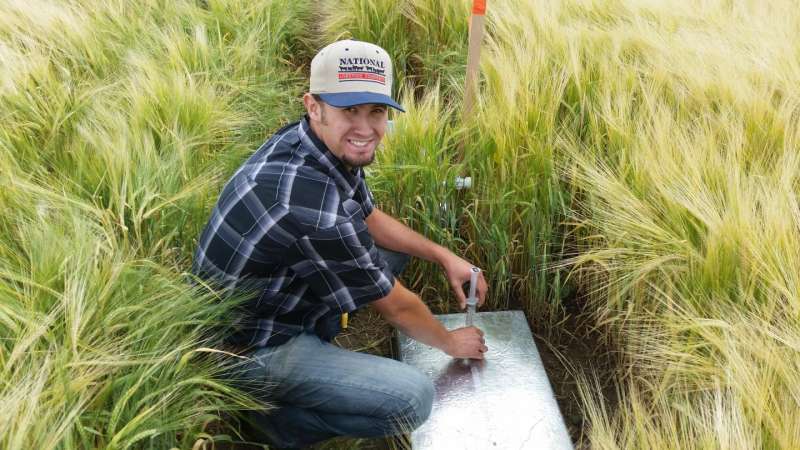Evaluating greenhouse gas emissions in an irrigated cropping system

Agricultural production in the western U.S. is an important part of the global food supply. However, due to concerns over impacts from agricultural greenhouse gasses on the global climate, there is a need to understand the effect of nitrogen source on emissions from cropping systems in semiarid environments.
In a paper recently published in the Soil Science Society of America Journal, researchers report nitrous oxide (N2O), carbon dioxide (CO2), and methane (CH4) emissions from a dairy forage rotation (silage corn-barley-alfalfa) in south-central Idaho that received various nitrogen sources, including granular urea, an enhanced-efficiency fertilizer (SuperU), dairy manure, or composted dairy manure.
During corn production, the team found that cumulative N2O emissions were 53% lower with SuperU when compared with granular urea, and crop yields were unaffected. But when SuperU was used the following year with barley, cumulative N2O emissions were the same as those from granular urea. Overall, N2O-N emission losses as a percentage of total N applied were very low at ? 0.21%. Carbon dioxide emissions were greatest from the manure treatment during the first two years, while CH4 emissions were negative, with no differences among the N treatments.
This work demonstrates that SuperU can reduce N2O emissions from irrigated cropping systems, but the results suggest that there is a crop-dependent effect. The study is currently being replicated for confirmation.
More information: Robert S. Dungan et al, Greenhouse Gas Emissions from an Irrigated Dairy Forage Rotation as Influenced by Fertilizer and Manure Applications, Soil Science Society of America Journal (2017). DOI: 10.2136/sssaj2016.08.0254
Journal information: Soil Science Society of America Journal
Provided by American Society of Agronomy
















